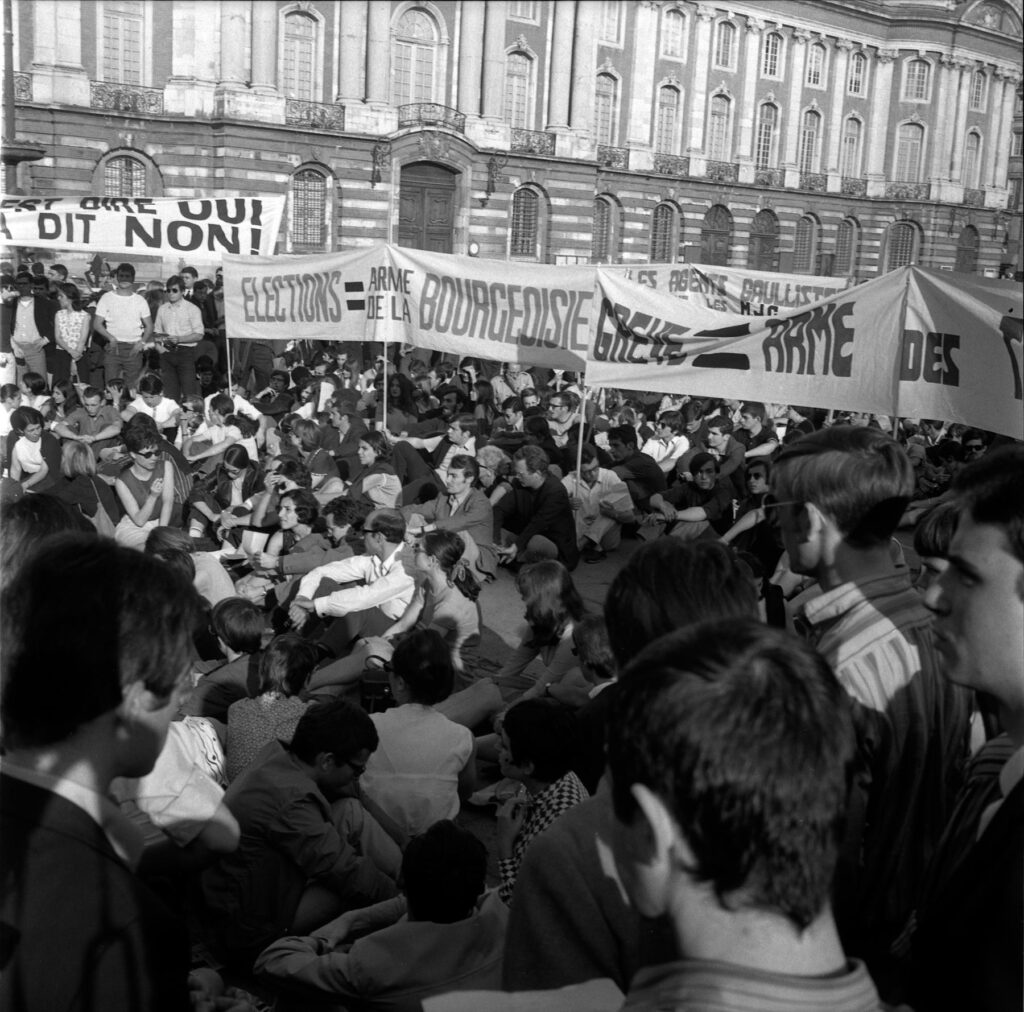The jubilee of May 1968 is a moment of shared nostalgia for a romantic social movement. Just as some people wear Che Guevara T-shirts, we sing of a time when slogans were poetic, theories were philosophical and our parents were creative. That’s forgetting that today, just as much if not more than 50 years ago, extraordinary things are happening in terms of political commitment and collective action. In 2018, men and women are also striving to make our societies and our world a better place.
It’s a given: we live in a society of over-consumption that no longer knows how to dream, and our elites do a poor job of representing us in the face of ever more pressing and stressful challenges. We thirst for a better world, for liberating utopias, and we suffer, as Alexis de Tocqueville anticipated, from living in a society in which the progress of democracy and material comforts have dulled the appetite for revolution.
“I fear, I confess“, he concludes at the end of “Democracy in America”, that in such a society, citizens “will finally allow themselves to be so well possessed by a cowardly love of present enjoyments that the interest of their own future and that of their descendants disappears, and that they prefer to follow the course of their destiny sluggishly than to make, if necessary, a sudden and energetic effort to straighten it out“.
The end of democracy?
Are we as soft as we think? No, on the contrary. Where Tocqueville feared that we would reach a point where “the mind bends and folds eternally in on itself without producing new ideas”, today we are in fact experiencing a movement of democratic innovation likely to change our societies.
Admittedly, such a statement may come as a surprise, as the situation is sometimes alarming. For the first time since 1945, the number of genuine democracies in the world has fallen over the last 5 years. Across Europe, the strengthening of surveillance and the shrinking of the space for deliberation are undermining our institutions. Hungary, Poland, the Czech Republic and Austria are reminders of just how fragile democratic gains can be, including in Europe. And beyond our borders, the hegemony – and for some the appeal – of authoritarian regimes such as Russia and China continues to grow.
And yet, while it is common – and legitimate! – to remember the generous ideals that drove the crowds to the streets 50 years ago, it is also imperative to recognise the democratic contagion movement that is currently underway. A citizens’ and civic movement that takes far more diverse forms than a simple vote every 4 or 5 years. To ignore this movement is to limit its revolutionary potential.
Democratic contagion?
We can see this in the United States: threats coexist with resistance. Numerous indicators show that citizen participation has been on the rise throughout Europe over the last two decades, even as electoral turnout rates have been falling. Boycotts, petitions, demonstrations: forceful action is no longer acceptable, and expression is diversifying outside the traditional parties. We have all become accustomed to criticising and participating in all areas of life, and digital tools offer us new possibilities. Even if this digital participation is sometimes superficial, good practices are spreading at least as fast as slogans.
The institutions are also getting involved. Take the Citizens’ Assembly convened by the Irish Parliament in recent months. Since 2016, this structure has brought together 66 citizens chosen by lot and 33 Members of Parliament to discuss subjects such as the right to abortion and the ageing of the population. Following on from the Citizens’ Convention convened between 2012 and 2014, the outcome of its work at the end of April will reform Ireland’s constitution and policies. This approach is directly inspired by the Icelandic constitutional crowdsourcing of 2011, from which concrete lessons were learned in terms of how citizens were recruited, the clear commitment of public authorities and the organisation of debates. It’s almost as if the G1000 bounced back where the public authorities understood the value of the approach.
The small town of Porto Alegre initiated the participatory budget in 1989, and today more than 1,500 towns around the world, including Antwerp, support each other in its implementation. The consensus conferences and policy labs invented by the Danes in the 1980s have set an example. In recent years, Australia and Canada have deployed around fifty deliberative processes involving random samples of citizens and rigorous dialogue protocols, whose opinions form the core of the decisions taken.
In civil society, the global spread of democratic innovations is also spectacular. In 2012, the Argentinian activist Pia Mancini launched a movement based on open source software to bring to parliament members of parliament who were committed to acting on the basis of citizens’ votes cast online. And in 2016, a #MaVoix.org list ran in the French parliamentary elections on the same principle. That same year, Barack Obama convened the Open Government Partnership for the first time. 8 countries responded to the call to open up through technology. There are now more than 70. Democracy festivals”, a Danish and Swedish tradition until recently, are now held every year in Estonia, Finland, Iceland, Latvia, Lithuania and Norway. Other European countries want their own.
Too soft, all that? “Be realistic, ask the impossible”, read the words on the walls of the Latin Quarter. After a dose of inspiration from 1968, let’s realise that we have indeed entered the post-representative democracy. And let’s cultivate these innovations, which are concrete responses to “illiberal democracy”. In line with the spirit of May 1968, they are the seeds of a more horizontal, creative and effective democracy, the only alternative to the populists who are betting on pessimism and the failure of democratic sentiment.
Originally published in L’Echo.




